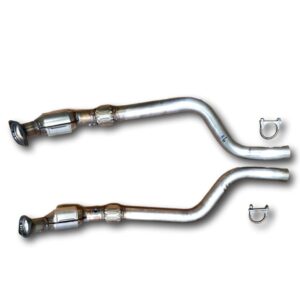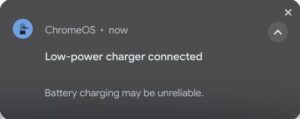Will a low battery cause a check engine light? The short answer is yes, it can. Picture this: you’re driving down the road, minding your own business, when suddenly that pesky check engine light illuminates on your dashboard. You start to panic, wondering what could be wrong with your beloved car. Before you go into full-on panic mode, take a deep breath. In some cases, a low battery can be the culprit behind this alarming signal. Let’s delve into the reasons why and explore possible solutions to this predicament. Stick around to find out how a low battery could cause your check engine light to make an appearance.
Will a Low Battery Cause a Check Engine Light?
When it comes to car troubles, a check engine light can be one of the most frustrating warning signs to confront. It can indicate a wide range of issues, from simple malfunctions to significant engine problems. In some cases, a low battery might trigger the check engine light to come on. This article will explore the relationship between a low battery and the check engine light, providing insights into why this might happen, what it means for your vehicle, and what steps you can take to address the issue.
Understanding the Check Engine Light
To comprehend why a low battery could trigger the check engine light, it’s essential to understand what this light actually signifies. The check engine light, also known as the malfunction indicator lamp (MIL), is part of your vehicle’s onboard diagnostics system. When the check engine light illuminates, it indicates that your car’s computer or engine control unit (ECU) has detected a problem within the vehicle’s systems.
The Purpose of the Check Engine Light
The primary purpose of the check engine light is to alert you to potential issues that could affect your vehicle’s performance or emissions. It serves as a general warning that something requires attention and needs to be diagnosed by a professional mechanic. While some problems are minor and can be resolved with simple maintenance, others might require more extensive repairs.
Reasons for a Low Battery to Trigger the Check Engine Light
When your car’s battery voltage drops significantly, it can result in various electrical malfunctions, including the triggering of the check engine light. Here are a few reasons why a low battery might cause the check engine light to come on:
1. Voltage Drop
A low battery can cause a voltage drop, impacting the electrical system’s performance. This voltage drop can create fluctuations in the power supply to the ECU, causing it to detect abnormalities and trigger the check engine light.
2. Communication Errors
A low battery can disrupt the communication between the various sensors and control modules in your vehicle. This interference can lead to miscommunication and false readings, causing the ECU to interpret the data as a malfunction and illuminate the check engine light.
3. Unstable Engine Parameters
The ECU relies on stable and accurate input data from various sensors to determine engine parameters. When the battery voltage drops, these sensors may not function optimally, resulting in unreliable readings. The ECU might interpret these inconsistent readings as engine malfunctions, leading to the activation of the check engine light.
Effects of a Check Engine Light Induced by a Low Battery
When the check engine light is triggered by a low battery, it is important to understand the potential effects on your vehicle. Here are a few common consequences:
1. Reduced Performance
A low battery can affect the overall performance of your vehicle. It can cause electrical systems, such as the fuel injection or ignition system, to function inefficiently or inconsistently. This can result in reduced engine power, decreased fuel efficiency, and overall poor performance.
2. Emission Issues
The check engine light is directly linked to your vehicle’s emissions control system. When the light comes on, it suggests that there might be a problem that could impact emissions. A low battery-induced check engine light could mean that your vehicle is not meeting the necessary emission standards, potentially leading to environmental concerns and possible issues passing emissions tests.
3. Diagnostics Challenges
When the check engine light is triggered by a low battery, it can make diagnosing other potential issues more challenging. Since the low battery is the main cause of the check engine light in this scenario, it can distract from identifying other underlying problems that might need attention.
Resolving a Check Engine Light Caused by a Low Battery
If you are experiencing a check engine light due to a low battery, there are several steps you can take to resolve the issue:
1. Charge or Replace the Battery
The first step is to address the low battery. You can either charge the battery if it is still functional or replace it if it is old or damaged. Once the battery is fully charged or replaced, the check engine light should turn off.
2. Reset the Check Engine Light
In some cases, even after resolving the low battery issue, the check engine light might still remain illuminated. To reset the light, you can use an OBD-II scanner or take your vehicle to a professional mechanic. They will be able to clear the error codes and reset the check engine light.
3. Monitor for Recurring Issues
After addressing the low battery and resetting the check engine light, it’s crucial to monitor your vehicle for any recurring problems. If the check engine light continues to come on or if you notice any unusual symptoms, it is best to consult a mechanic for a thorough diagnosis.
While a low battery can trigger the check engine light, it is often a symptom rather than the primary issue. It is important to address the low battery promptly and resolve any underlying causes that might have contributed to the low battery. By doing so, you can ensure optimal performance, emissions compliance, and peace of mind. If you are unsure about the cause of your check engine light, it is always recommended to seek professional assistance to accurately diagnose and resolve any potential problems.
Frequently Asked Questions
Will a low battery cause a check engine light?
A low battery can potentially cause a check engine light to come on in some cases. Here are a few frequently asked questions related to this topic:
1. Can a low battery trigger a check engine light?
Yes, a low battery can trigger a check engine light. When the battery voltage drops below a certain level, it can affect the electrical systems in your vehicle, including the engine control unit (ECU). This can cause the check engine light to illuminate.
2. What are the common symptoms of a low battery causing a check engine light?
In addition to the check engine light coming on, you may also experience other symptoms such as difficulty starting the engine, dimming interior lights, and a decrease in overall electrical power in your vehicle.
3. How can I determine if a low battery is the cause of the check engine light?
If you suspect that a low battery is triggering the check engine light, it is recommended to have your battery tested using a voltmeter or by taking your vehicle to a certified mechanic. They will be able to assess the battery’s condition and determine if it needs to be charged or replaced.
4. Will the check engine light turn off once the battery is charged or replaced?
In some cases, the check engine light may automatically turn off after the battery is charged or replaced. However, it is important to note that if the check engine light was triggered by another issue or fault in the vehicle’s system, it may remain illuminated even after addressing the low battery problem.
5. Can I reset the check engine light myself after fixing a low battery issue?
Yes, you can typically reset the check engine light yourself after fixing a low battery issue. This can be done by disconnecting the negative terminal of the battery for a few minutes or using an OBD-II scanner to clear the stored error codes. However, if the underlying issue is not resolved, the check engine light may come back on.
Final Thoughts
A low battery can indeed cause a check engine light to come on. When the battery voltage drops below a certain level, it can affect the functioning of various systems in the vehicle, including the engine management system. This can trigger the check engine light to illuminate as a warning. It is important to note that a low battery is not the only possible cause for a check engine light, and it is recommended to have the vehicle properly diagnosed by a professional to determine the exact issue.



